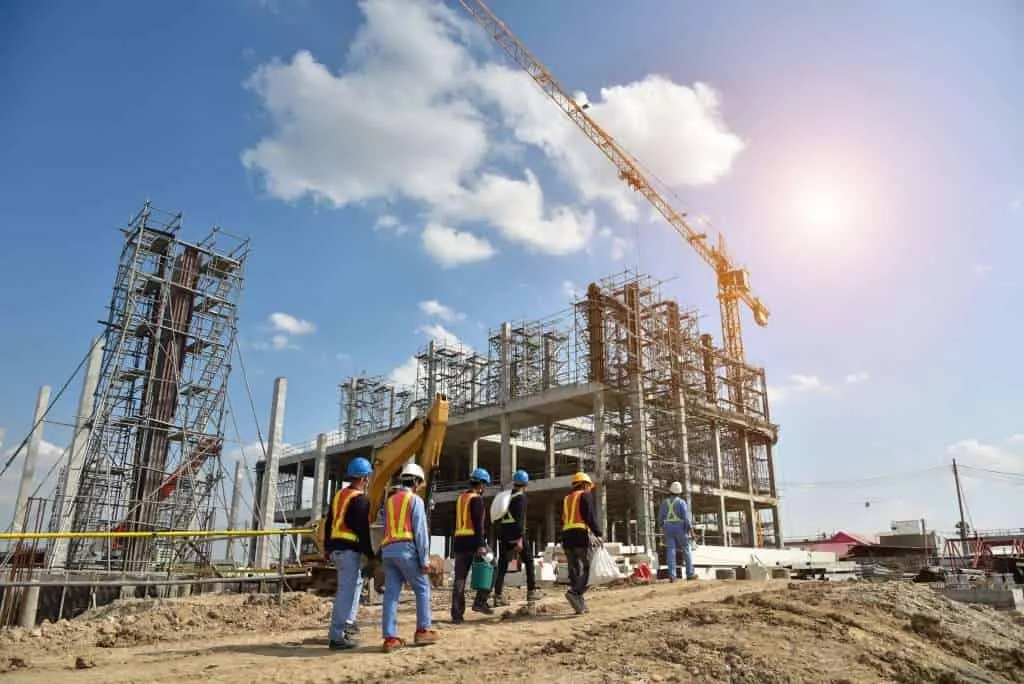How to Reduce Waste on Construction Sites
Tons of waste are generated daily in the construction industry across various job sites. Each year, over 250 million tons of solid waste are produced in the United States alone. About one-third of this waste is recycled, and most construction companies strive to eliminate waste on their job sites. It's important to care for the environment by recycling waste, but some construction companies overlook the tremendous benefits of waste disposal.
In this article, we'll explore the advantages of waste disposal and ways to reduce its accumulation on construction sites:
Tons of waste are generated daily in the construction industry across various job sites. Each year, over 250 million tons of solid waste are produced in the United States alone. About one-third of this waste is recycled, and most construction companies strive to eliminate waste on their job sites. It's important to care for the environment by recycling waste, but some construction companies overlook the tremendous benefits of waste disposal.

In this article, we'll explore the advantages of waste disposal and ways to reduce its accumulation on construction sites:
The environment is the main beneficiary of waste disposal since it results in less waste going to landfills. It also consumes fewer natural resources, reduces carbon dioxide emissions from using, producing and transporting waste materials, as well as lowering the risk of contamination.
The environment should be clean for all of us, and proper waste disposal can guarantee a healthy environment for everyone.
On the other hand, construction companies benefit from waste disposal because it helps them reduce operational costs and increase productivity. It also opens more business opportunities for construction companies that encourage waste recycling as an eco-friendly practice, which can expand their customer base.
Here are steps to reduce waste on a construction site:
1. HAVE A WASTE DISPOSAL PLAN
The responsibility for designing and creating a construction plan lies with project managers before implementation begins. This ensures fewer errors and proper execution of the project without material waste. The plan should include the following tips to minimize waste:
- Create a feasible plan that accounts for potential waste.
- Provide essential items such as compost bins, recycling containers and trash cans.
- This plan also offers a template that calculates the exact amount of required materials and places orders accordingly to avoid waste.
- Helps identify recyclable materials.
- Trains on-site workers on how to properly sort waste.
2. CHOOSING A SUPPLIER IS VERY IMPORTANT
It is very important to choose a supplier whose goals align with yours. This matters because selecting a supplier who understands your objective ensures that the project won't be delayed. Your supplier's schedule should be flexible, and they must be ready to collaborate with you. You need to invest considerable time finding the best suppliers before hiring them. Once you see a supplier who can help achieve your sustainability goals, you can work with them to have your containers emptied as quickly as possible.
3. TRY DEMOLITION INSTEAD OF DECONSTRUCTION
Instead of demolition, consider deconstruction since it is seen as a method of reuse. Deconstruction involves taking apart construction structures so that materials are not wasted. Instead, they are converted into resources to be used for future construction projects. This is a great idea because it also has a significant impact on the environment by reducing toxic air pollutants associated with demolition.
4. RECYCLE UNSUITABLE ELEMENTS
Construction companies can place various bins for employees to sort materials. This will help reduce the amount of waste in your garbage containers and significantly lower the volume of produced waste. Some materials that can be recycled include asphalt, brick, concrete, carpeting, cardboard, drywall, gravel, metal, paper, plastic, roofing materials and wood (unprocessed). Other recyclable items include sinks, countertops and bathtubs.
5. DONATE MATERIALS
If materials are in good condition, you can donate them to organizations and charitable projects that need them. Most construction companies send most waste to landfills, but it's a noble idea to donate these materials if they are still useful for other projects. For example, doors, fixtures and appliances can be donated to organizations.
6. USE SELF-EMPTYING CONTAINERS FOR COLLECTING REMNANTS FOR RECYCLING
Use self-emptying containers for collecting remnants and reusing them in your projects instead of cutting new materials. Reusing materials is a great idea for reducing waste on construction sites. These remnants can be moved to a specific location where project engineers can access them and use them for tasks.
7. ENTER INTO A CONTRACT WITH A WASTE RECYCLING AND DISPOSAL COMPANY
Construction companies can enter into contracts with well-known local recycling companies that handle specific materials, and another company for waste disposal.
Conclusion
When you dispose of fewer materials, there is a chance these can be reused, helping you save money that would otherwise be spent on waste disposal at construction sites. Donating your materials can bring tax benefits to your company and help improve its image while supporting a healthy environment.
Need a renovation specialist?
Find verified professionals for any repair or construction job. Post your request and get offers from local experts.
You may also like
More articles:
 How to Protect Your Smart Home from Cyber Threats
How to Protect Your Smart Home from Cyber Threats How to Keep Your Property Safe and Clean in Winter?
How to Keep Your Property Safe and Clean in Winter? How to Decide Which Furniture to Keep and Which to Remove?
How to Decide Which Furniture to Keep and Which to Remove? How to Care for Your Home Oven
How to Care for Your Home Oven How to Make a Minimalist Interior Work? Follow These Recommendations
How to Make a Minimalist Interior Work? Follow These Recommendations How to Make Your Home White at the Edge of Dreams
How to Make Your Home White at the Edge of Dreams How to Create a Beautiful Garden Path
How to Create a Beautiful Garden Path How to Make Your Multifamily Home Attractive to Tenants
How to Make Your Multifamily Home Attractive to Tenants